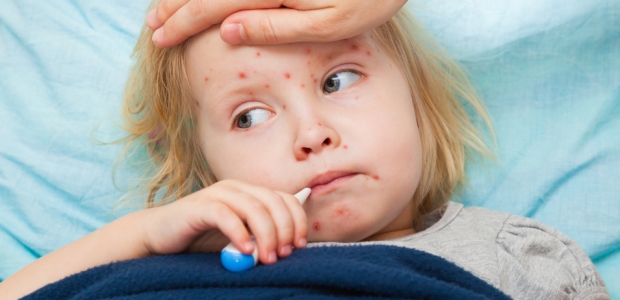
Super Bowl Activities Occurring Amid Measles Outbreak
The Arizona Department of Health Services' director issued a call to action Jan. 28, asking all Arizonans to be up to date on their vaccinations. He reported more than 1,000 contacts have been identified for the seven measles cases in Arizona as of that date.
Just in time for Sunday's Super Bowl XLIX at University of Phoenix Stadium, the Arizona Department of Health Services is coping with a measles outbreak. Will Humble, the department's director, issued a call to action Jan. 28, asking all Arizonans to be up to date on their vaccinations. He reported more than 1,000 contacts have been identified for the seven measles cases in Arizona as of that date.
Four of the first five cases identified in Arizona were among an unvaccinated Pinal County family that had visited Disneyland, where the outbreak began. Humble's Jan. 28 summary said a child from that family was taken to two urgent care facilities while sick with measles and exposed 18 children to the illness, including many less than a year old; 13 of the 18 were completely unvaccinated.
A woman in Maricopa County developed measles after being exposed by the initial family, and she may have exposed people at the Phoenix Children's Hospital East Valley Center; Phoenix Children's and Maricopa County Public Health are following up with the families of the 195 children who may have been exposed, Humble wrote.
He added that Pinal County Public Health confirmed a fifth case, a man who was exposed to the family of four other cases identified the previous week. "Pinal County has contacted the places of business where the patient went and they're helping the health department by placing signs at their entrances to inform customers and employees that they could have been exposed if they were in these locations during specific timeframes. Pinal County is also publicizing the times and places in hopes of finding contacts," he wrote. "We and the county health departments are continuing to follow protocols for measles investigation to reduce the chance of disease spread. For example, Maricopa County has recommended that all children who were exposed and haven't had at least one dose of MMR vaccine not go to school/daycare for the 21 day incubation period (about Feb. 12) to avoid potential spread. Exposed adults who were born in 1957 or later and who haven't had measles or at least one measles vaccine are being advised not go to work or other public places for the same 21 day incubation period. Anyone who may have been in contact with a measles case will be contacted to determine whether they have immunity or if they need to be on the watch for symptoms. Many of the susceptible contacts have been offered immune globulin (IG). The immune globulin won't prevent them from getting measles but can lessen the symptoms if it's administered within 6 days."
Humble concluded his post by writing, "This is a critical point in this outbreak. If the public health system and medical community are able to identify every single susceptible case and get them into isolation, we have a chance of stopping this outbreak here. However, if we miss any potential cases and some of them go to a congregate setting with numerous susceptible contacts, we could be in for a long and protracted outbreak."
He wrote a Jan. 29 blog post about the department's activities related to the Super Bowl. The federal government considers it an "event of national significance," and ADHS is fulfilling three primary functions: BioWatch testing, suspicious substance testing, and enhanced public health surveillance. BioWatch, a U.S. Department of Homeland Security program that is 100 percent federally funded, was developed to detect pathogens in outdoor air in the event of a terrorist attack. Several sampling stations in Maricopa County operate 365 days a year, and the ADHS laboratory tests the filters daily for a number of pathogens.